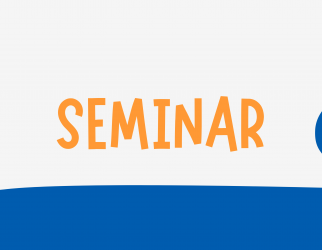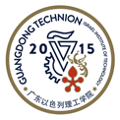
Spin and anomalous Hall effects in electron hydrodynamics
Title
Spin and anomalous Hall effects in electron hydrodynamics
Speaker
Dr. Mikhail Glazov (Ioffe Institute, St. Petersburg, Russia)
Host
Prof. Ivan Savenko (Physics, GTIIT)
Time and Location
18:00-19:00, Beijing Time, April 3, E509, North Campus, GTIIT
Zoom
https://us04web.zoom.us/j/72636973717?pwd=xxUKDXD8MbdycBVrttIw87bgJiyRET.1
Passcode: Fn39eP
Abstract
Recent technological advances make it possible to fabricate ultraclean two-dimensional electronic systems where the electron mean free path due to static disorder and phonons is much larger than the conducting channel width. In such channels novel, ballistic and hydrodynamic, regimes of electron transport can be realized which results in drastic modifications of the conductivity and normal Hall effect.
Here we develop a theory of related phenomena: spin Hall and anomalous Hall effects in ultraclean channels with two-dimensional electron gas. The anomalous Hall effect is the generation of the electric field transverse to the flowing current and transverse (also known as Hall) voltage unrelated to the Lorentz force action. In the spin Hall effect, the spin polarization is accumulated at the channel edges in the absence of magnetic field. Microscopically, these effects are related to the spin-orbit interaction. We take into account all relevant contributions to the spin and anomalous Hall effects: the skew scattering of electrons, side-jump, and anomalous velocity and mainly focus on the hydrodynamic transport regime where the electron-electron collisions dominate over the momentum scattering processes.
The role of electron-electron interaction in these effects is analyzed in detail. We demonstrate that the electron-electron collisions: (i) while preserving the electric current result in relaxation of the spin current, (ii) cause generation of the spin current and contribute to the spin-Hall effect, (iii) contribute to the anomalous Hall effect via the `odd’ viscosity only.
Possible experimental scenarios for observation of the anomalous Hall effect in ultraclean channels are briefly discussed.
[1] M. M. Glazov, Valley and spin accumulation in ballistic and hydrodynamic channels, 2D Mater. 9, 015027 (2022)
[2] M. M. Glazov and L. E. Golub, Spin and valley Hall effects induced by asymmetric interparticle scattering, Phys. Rev. B 106, 235305 (2022)
[3] K. K. Grigoryan, D. S. Zohrabyan, and M. M. Glazov, Anomalous Hall effect in ultraclean electronic channels, Phys. Rev. B 109, 085301 (2024)
Biography
In 2005 Mikhail Glazov was graduated from the Polytechnical University after defense of master of Physics thesis with honors. Since 2003 Mikhail Glazov works at Ioffe Insitute.
PhD thesis “Spin dynamics of electrons and excitons in quantum wells and quantum dots” (2008) at Ioffe Institute, supervisor Prof. E.L. Ivchenko.
Habilitation thesis (Doctor of Sciences) “Spin and kinetic phenomena in nanostructures and graphene” (2012) at Ioffe Institute.
Dr. Glazov has several awards including the Medal and Prize for Young Researchers of Russian Academy of Sciences (2014) and Euler prize by St.-Petersburg Government (2015).
In 2016 Mikhail Glazov was elected to the Russian Academy of Sciences as a corresponding member.
Dr. Glazov’s research interests include condensed mattery theory, physics of two-dimensional semiconductors, spin physics and light-matter coupling effects. Dr. Glazov is also a Chair of Condensed Matter Physics at Alferov University, St. Petersburg.
Speaker
-
Dr. Mikhail Glazov
Local Time
- Timezone: America/New_York
- Date: 03 Apr 2025
- Time: 6:00 am - 7:00 am


